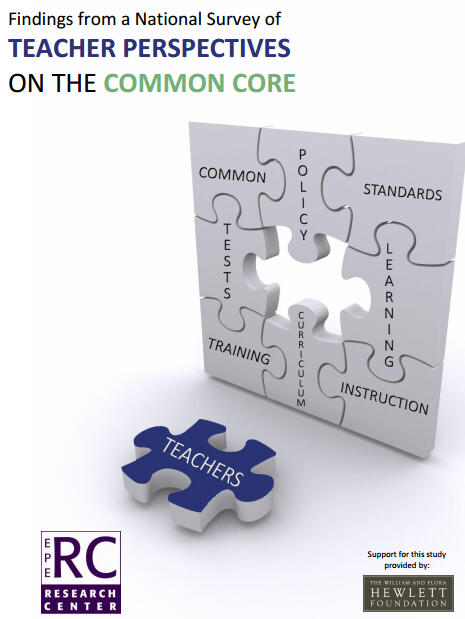With the introduction of the Common Core State Standards (CCSS) in the United States, it may be worthwhile for the Philippines to examine and observe how a new curriculum is implemented. The changes in the United States public school education are not as dramatic as the Philippines DepEd's K to 12. CCSS involves new standards for mathematics and english language arts. On the other hand, the new curriculum in the Philippines includes addition of kindergarten plus two years at the end of high school, mother tongue based - multilingual education, and a spiral curriculum for both math and science. CCSS is therefore so much smaller and yet, the discussions and consultations are wider and deeper in participation. When the draft of CCSS was made public back in March 2010, nearly 10,000 people provided feedback (half were K-12 teachers). And after almost three years, the discussion continues. Recently, the Editorial Projects in Education Research Center, with support from the Hewlett Foundation, published
a survey of K-12 teachers' views on the new CCSS:
This survey might not be representative of K-12 teachers since the survey included only the users of
edweek.org (Education Week's website). Being familiar with the site and comments posted on articles, one might be able to have a general impression of the users. Comments on edweek.org are unlike those in popular news websites. The comments posted on Education Week are generally thoughtful, coherent and respectful. Education Week is really a community that takes public school education seriously. Ninety percent of the respondents in the survey were K-12 teachers, the rest were either education specialists, curriculum coordinators, content specialists, or department leaders. Since the pool is from Education Week users, a clear majority of the respondents are familiar with the Common Core State Standards in math and english. Thus, although not representative, the survey still provides useful and reliable information on how teachers are receiving the new curriculum. And here are some of the findings (
copied from the executive summary of the survey):
- Teachers are most likely to get information about the CCSS from administrators at their schools and from their state education departments.
- Although most teachers have received some professional development related to the CCSS, respondents have typically spent less than four days in such training.
- The most common training topics are the new English Language Arts and Math standards, alignment between the CCSS and prior state standards, and collaboration with colleagues.
- In a large majority of cases, professional development has been delivered in structured, formal settings like workshops and seminars.
- Staff from respondents’ own schools and districts are the most common providers of CCSS-related professional development
- Few teachers feel that their textbooks and curricular materials are very well aligned with the common standards.
- Teachers feel moderately well prepared to teach the CCSS to their students as a whole, but notably less ready in the case of certain student groups, such as English-language learners and students with disabilities.
- An overwhelming majority of teachers feel that the quality of the CCSS is at least on par with their states’ prior standards.
- On the whole, teachers also agree that implementing the common standards will help them to improve their own teaching and classroom practices.
- Teachers identified a variety of resources that would enable them to better implement the CCSS, including: more planning time, better access to aligned curriculum and assessments, additional collaboration with colleagues, and a clearer understanding of the new expectations for students.
From the points shown above, it is clear that even with just a change in the standards for two subjects, Math and English, the scope is already dramatic. Thus, it is no surprise that the change is occurring seemingly at a very slow pace. The Philippines DepEd's K to 12 reform is a behemoth compared to CCSS, yet I still have to find a thoughtful evaluation of what is going on in Philippine basic education that involves teachers. There are criticisms coming from teacher groups such as the Alliance of Concerned Teachers and Teachers' Dignity Coalition. Unfortunately, these are largely dismissed as useless criticisms by the current administration. Their voices, the teachers' voices, remain ignored.

Comments
Post a Comment